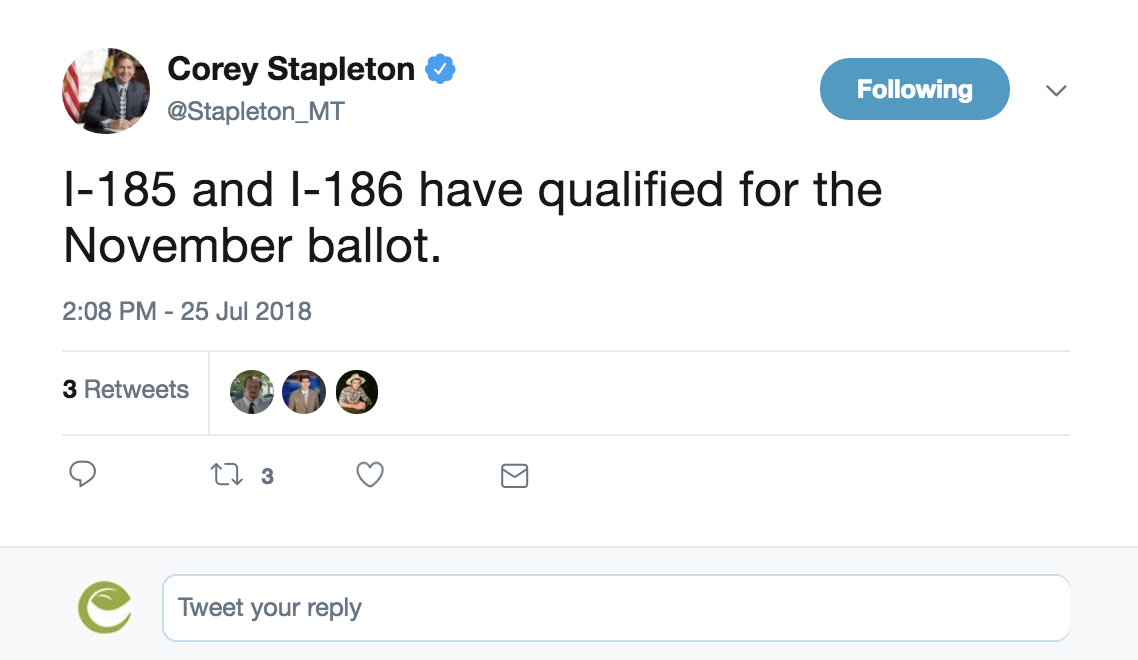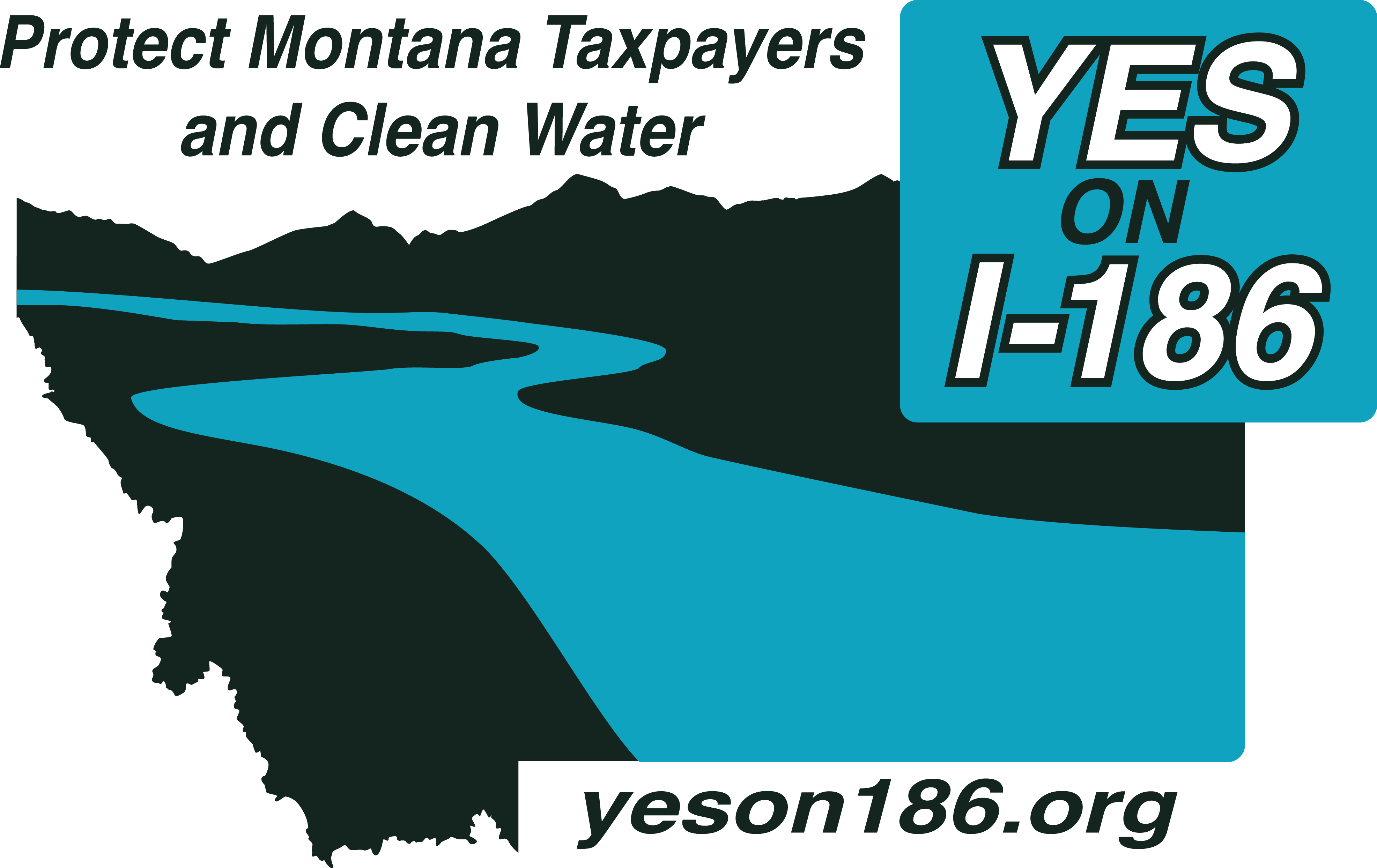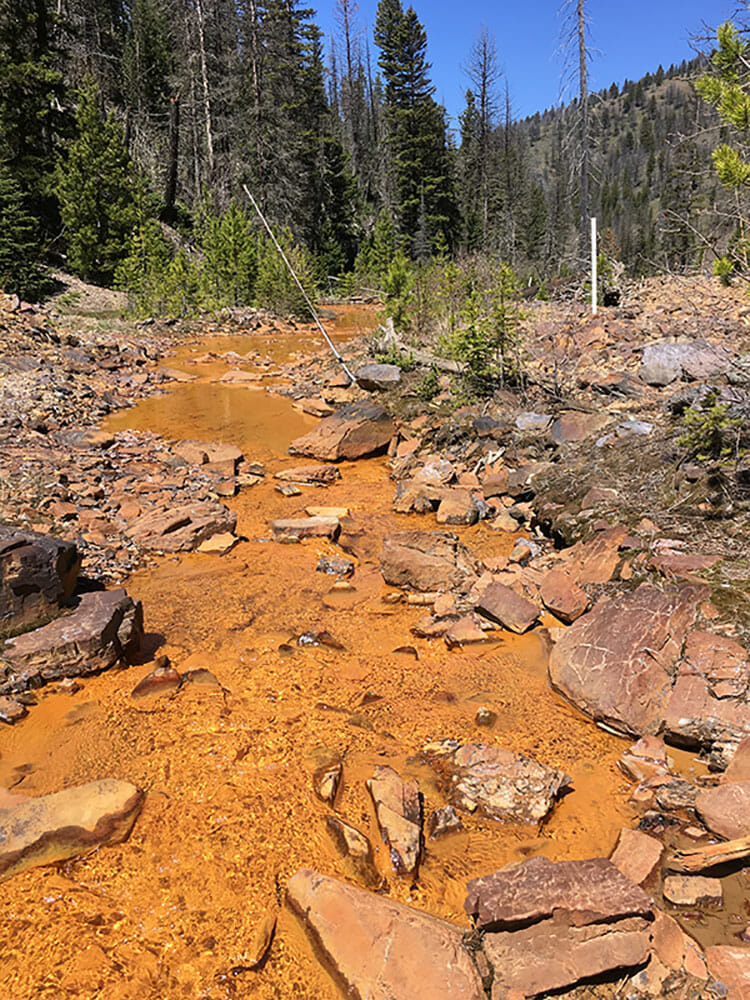By Chris Wood
“I-185 and I-186 have qualified for the ballot.”
With that inauspicious tweet, Montana’s Secretary of State Corey Stapleton confirmed two state-wide ballot initiatives this November in Montana. One is of huge import to people who care about clean water, trout, and trout fishing in Montana.
 I-186 would require Montana to deny permits for mines that create “perpetual pollution.” Forty-five thousand Montanans signed petitions supporting the idea that the state should not permit mines that require “perpetual treatment.”
I-186 would require Montana to deny permits for mines that create “perpetual pollution.” Forty-five thousand Montanans signed petitions supporting the idea that the state should not permit mines that require “perpetual treatment.”
Most mines produce minerals for a single generation. Perpetual pollution is, by definition, forever.
Not all mines are created equal. And today’s mining laws are better than in the old days. Isn’t it reasonable to ask a company to demonstrate that it will not allow the production of minerals to diminish the productive capacity of our lands and waters, forever?
When mining companies propose mines in iconic landscapes such as the headwaters of the Smith River, one the most pristine and scenic rivers in Montana or Bristol Bay, Alaska—where one of its tributaries provides nearly half of the world’s wild sockeye salmon; shouldn’t the experts be able to say “no?” Better yet, “Hell no!”
 That is precisely the point of I-186. It allows Montana citizens to say “no” to mines that produce minerals for a few decades but then produce water pollution liabilities that last forever. Importantly, I-186 only applies to new mines. It would not apply to already permitted mines, or the expansion of existing mines.
That is precisely the point of I-186. It allows Montana citizens to say “no” to mines that produce minerals for a few decades but then produce water pollution liabilities that last forever. Importantly, I-186 only applies to new mines. It would not apply to already permitted mines, or the expansion of existing mines.
In the history of our nation, no business or company has lasted forever. Kodak? Radio Shack? Blockbuster? Pan Am? All famous American companies. All gone.
Zortman-Landusky, Beal Mountain, Basin Creek, Kendall Mine, the Mike Horse Mine; also all gone, except Montana taxpayers remain on the hook to pay tens of millions of dollars for the clean-up including in some cases, the cost of treating polluted water forever.
I-186 allows the State to say “no” to a mine that will create perpetual pollution.
Trout Unlimited works with mining companies across the nation to clean up abandoned mines. We tried to negotiate with the industry in Montana, but the legislature refused to take up our bill in the past few sessions, and the industry walked away from the negotiating table. I do not understand why mining companies aren’t leading the charge in support of I-186 to demonstrate their commitment to sustainability? Perhaps because perpetual treatment is the opposite of sustainable.
Clean water and healthy fisheries define Montana and are a huge driver to the State’s economy. That is why Trout Unlimited, our volunteers and other partners support allowing state experts to say, “No. This mine in this place is a bad idea, because its pollution will last forever.”
If you care about clean water, fishing, and sustainable jobs in Montana, please support I-186.
Chris Wood is the President and CEO of Trout Unlimited. He lives in Washington, D.C., and works from TU’s headquarters in Arlington, Va.



